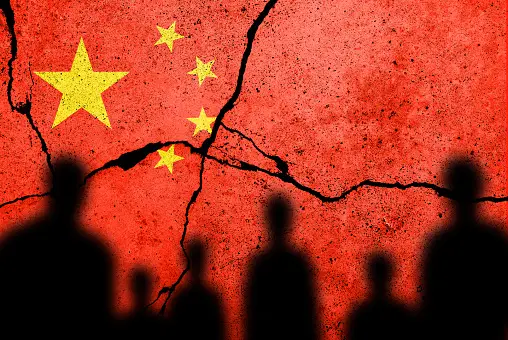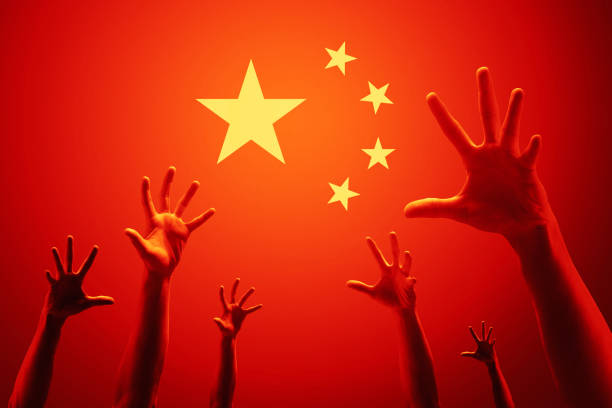Unsettling Winds in China’s Inner Circle, The Disappearance of Xi’s Loyalists Raise Questions About Xi Jinping’s Leadership
As President Xi Jinping embarks on an unprecedented third term, his strategic manoeuvre to fill China's highest echelons with loyalists appeared to be a calculated move aimed at realising his grand vision for the nation. Yet, less than a year into this term, a tempest of turbulence has erupted within Xi's carefully chosen ruling elite. The unsettling development has ignited questions about Xi's judgment, casting a shadow of doubt over his governance at a time when China faces significant economic challenges and heightened global competition with the United States.

Xi Jinping meticulously filled China’s uppermost ranks with loyalists, presumably aiming to pave the way for realising his ambitious vision for the nation, as he starts his third term, it seems to be on shaky ground.
Less than a year into this term, a storm of turmoil is engulfing Xi’s handpicked governing elite, casting doubts on his judgment and undermining international confidence in his governance—precisely when China is grappling with significant domestic economic challenges and heightened global competition from the United States.
In the span of a few months, two senior members of China’s cabinet, who played vital roles as the country’s chief diplomats to the world, have mysteriously vanished.
Defense Minister Li Shangfu has been absent from public view for three weeks, triggering speculation of a potential investigation. Notably, Foreign Minister Qin Gang was dramatically removed from office after vanishing from public sight for a month.
The sudden disappearance of these officials coincides with Xi’s efforts to eliminate perceived threats and vulnerabilities in a bid to strengthen national security amid escalating tensions with Western powers.

Both Li and Qin held positions among China’s five state councillors, senior roles that outrank standard ministerial positions; Li is also a member of the Central Military Commission, a powerful body presided over by Xi, responsible for commanding the armed forces.
Simultaneously, the unexpected removal of two top generals has sent shockwaves through the People’s Liberation Army Rocket Force, an elite unit established by Xi to modernise China’s conventional and nuclear missile capabilities, thus raising concerns about a broader purge within the military.
The Chinese government, which has grown increasingly opaque under Xi’s leadership, has provided minimal public explanations for these personnel shake-ups, and it has shown little interest in addressing the rampant speculation that has ensued.
On Tuesday, a leading daily reported that Qin had been found to be engaged in an extramarital affair during his tenure as China’s envoy to Washington, according to sources familiar with the matter; however, China’s Foreign Ministry declined to comment on the report.
The lack of transparency regarding the fate of these high-profile ministers has damaged Beijing’s international image, which has long presented its political model as more stable and efficient than Western democracies.
Experts assert that the rising uncertainty among China’s ruling elite has exposed vulnerabilities within its one-party system, aggravated by Xi’s consolidation of personal power during his unprecedented third term.
“What’s happening in China represents a significant political risk emanating from Beijing,” says Drew Thompson, a senior research fellow at the National University of Singapore. “This risk extends to both Xi Jinping and his relationship with his handpicked subordinates, as well as the absence of established rules and norms governing behaviour in the system.”
Although the role of the defence minister in the Chinese system is largely ceremonial, Li plays an important role as a public face of China’s military diplomacy to the outside world.
James Char, a research fellow at the S. Rajaratnam School of International Studies in Singapore, points out that “if Li Shangfu is truly in trouble, Beijing will be perceived very negatively to have two state councillors removed so early in Xi Jinping’s third term.”

Since his appointment in March, Li has engaged in diplomatic activities such as meeting his Russian counterpart in Moscow, visiting Belarus’ president in Minsk, and shaking hands with US Defense Secretary Lloyd Austin at a security conference in Singapore.
However, recent reports suggest that Li has missed several diplomatic engagements in recent weeks, including a border defence meeting with Vietnamese officials and a meeting with Singapore’s Navy Chief in Beijing.
Yet, there is a potential silver lining in Li’s mysterious absence when it comes to stabilising US-China relations.
Li was sanctioned by the US in 2018 due to China’s acquisition of Russian weapons, and Beijing has repeatedly indicated that the US would not have access to Li unless the sanctions were lifted.
Therefore, if Li were removed as defence minister, it could potentially open a window for the resumption of high-level military talks between the two superpowers.

Xi Jinping’s Potential Downfall
According to analysts, the potential downfall of Xi’s own loyalists would reflect poorly on the top leader, who has amassed an unprecedented level of power and decision-making authority in China in recent decades.
“Two state councillors personally promoted by Xi have encountered difficulties within six months. No matter how hard the authorities try to defend it, Xi cannot escape the blame,” notes Deng Yuwen, a former editor of a Communist Party newspaper now residing in the US. “There will be questions within the party about the kind of people he has placed in important positions.”
Rahm Emanuel, the US ambassador to Japan, has even drawn a parallel between Xi’s cabinet reshuffling and Agatha Christie’s novel “And Then There Were None,” humorously asking, “Who’s going to win this unemployment race? China’s youth or Xi’s cabinet?”
China is already grappling with a series of economic challenges, including record youth unemployment, mounting local government debt, and a heightened property crisis; therefore, the growing uncertainty within Xi’s inner circle could aggravate a crisis of confidence in the world’s second-largest economy.
“Xi’s latest high-level purge underscores his belief that ideological cohesion, not economic performance or perceived military prowess, are the cornerstones of a nation’s strength, a lesson he drew from the Soviet Union’s collapse,” says Craig Singleton, a senior China fellow at the Foundation for Defense of Democracies in Washington, DC.
“Li’s removal may not seriously affect China’s state relations, but it will almost certainly reinforce the international business community’s growing concerns regarding party overreach and dwindling transparency in China.”

Who Is Li
Li, a military leader aged 65, began his career at one of China’s main satellite launch sites in Sichuan province, gradually ascending the ranks to become its director. After three decades at the launch center, he was promoted to work in the PLA’s headquarters on armaments in 2013, shortly after Xi came to power.
Li is believed to be a protege of General Zhang Youxia, Xi’s childhood friend and closest military ally. Zhang’s elevation to first vice chairman of the Central Military Commission during the leadership reshuffle in October underlines his prominence despite having surpassed the unofficial retirement age.
From 2017 to 2022, Li oversaw China’s weapon procurement as the head of the Central Military Commission’s Equipment Development Department, a position previously held by Zhang.
In July, shortly before the abrupt removal of the two top generals from the Rocket Force, the Equipment Development Department announced a renewed crackdown on corrupt procurement practices, soliciting tips on questionable activities dating back to 2017—the same period when Li assumed leadership of the department.
Fighting Corruption Within
Xi has persistently waged an anti-corruption campaign since assuming power, ensnaring hundreds of senior officials, generals, and countless lower-level cadres.
However, experts argue that this enduring battle against corruption, disloyalty, and concerns about military loyalty emphasises fundamental issues in the governance structure of Beijing, including the lack of checks and balances and an over-reliance on top-down party control.

Struggle for Power
Xi has already consolidated more power than any other Chinese leader in recent history and continues to intensify efforts to bolster his authority within both the party and the military.
Xi, last week, called for unity and stability within the military during an inspection in China’s northeast as speculation mounted regarding the whereabouts of the defence minister.
According to Thompson, the lack of political trust within the system is an underlying catalyst for these campaigns.
Xi is not the only Chinese leader to turn against his own inner circle after accumulating unrivalled personal power. Chairman Mao Zedong, the founding father of Communist China and the most powerful leader before Xi, purged many of his once-trusted allies during the Cultural Revolution.
Char, the expert at the S. Rajaratnam School of International Studies, warns that these political shake-ups do not suggest Xi is losing control but rather reflect the inherent nature of one-party centralised rule in China and until Xi chooses to reform the entire political system, such purges are likely to persist.
The Last Bit, The storm of uncertainty swirling within China’s political elite shows the inherent vulnerabilities in a one-party system, a reality magnified by Xi Jinping’s consolidation of power during his third term.
Questions linger about the fate of Xi’s loyalists and the consequences for China’s domestic and international affairs.
While Xi’s authority remains formidable, the absence of transparency and the unpredictability of political purges highlight the challenges inherent in China’s top-down, centralised rule.




